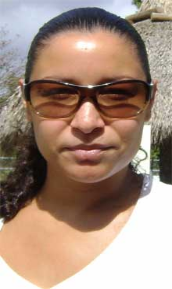Selecting a PI in Costa Rica
![]() Selecting a PI in Costa Rica can be a challenge. There are only two American PI’s that are here. The rest offer their services from remote locations. This is reason enough to thoroughly vet a PI before you retain them. One in particular is adept at manipulating search engines. Much of the information they promote appears to be generic. Additionally, with the advent of AI, a lot of what they print appears to be generated by AI.
Selecting a PI in Costa Rica can be a challenge. There are only two American PI’s that are here. The rest offer their services from remote locations. This is reason enough to thoroughly vet a PI before you retain them. One in particular is adept at manipulating search engines. Much of the information they promote appears to be generic. Additionally, with the advent of AI, a lot of what they print appears to be generated by AI.
To give you an idea of what challenges you may encounter, one of the PI’s was deported for being illegally in Costa Rica. He relocated to a neighboring country, and set up shop there. He continued to advertise he was in Costa Rica. Since that time he has reportedly been forced to flee that country. So, you can see why you should vet the PI before you retain one
Why is vetting important?
Let’s face it, you are sharing personal and sensitive information with someone you don’t know. I have an idiom that is appropriate. “if it walks like a duck, swims like a duck, and quacks like a duck…..it’s a duck!” If talking with the PI, you sense or feel uncomfortable, thank them for their time and move on to another. Never be pressured into making an important decision by an aggressive sales pitch and never tolerate any type of bullying. Do not retain a firm that will not allow you to have direct contact with the PI.
How to vet a PI in Costa Rica
First, find out if they are legally here in Costa Rica and have the right to work here. If they are they will be able to provide you with a cedula number (Costa Rica Identification) without that they can’t legally work here. The law here is similar to that in the United States about working without Government permission. If they give you a cedula number, call me and I will verify it for you free of charge. The two Americans referenced earlier are both legal to work in Costa Rica.
Secondly,
Make sure the PI can come to the United States if his investigations lead to litigation. This is another reason for you to have direct communication with the PI. Most of the time when one of the international firms accepts a case they farm it out to a local. Speaking with the PI will let you know if he/she can speak English. Another reason is to have timely updates as to the progress of the investigation. If the information has to go through a PI provider, it will neither be timely nor accurate. You won’t have the opportunity to question the PI!
Thirdly,
Ask about their experience as a PI in Costa Rica. The law and customs here is uniquely different from that of the United States. The basis for the law here is Napoleonic as opposed to the Common Law which is the basis for law in the United States. Obtaining information here is rife with bureaucratic obstacles. If you have a PI that doesn’t speak and understand both languages you will not understand what is going on.
Finally,
Make sure they have a well-established infrastructure they can access in the event the investigation requires special skills such as an attorney. Often some questions can only be explained with the help of an attorney. PI’s are not attorneys so any information they give you concerning the law here will be flawed.
Conclusion:
This is particularly true in the recovery of money or property. There is no Bar Association here thus there is no oversight of lawyers. All recorded documents here must be done by a Notary. All notaries must be licensed Costa Rica attorneys, but not all attorneys are Notaries. To have that designation, they have to attend an additional year of law school.




 Just like any other country, scams in Costa Rica experience its share of scams targeting both tourists and locals. While the situation may change over time, as of my last update in September 2021, here are some
Just like any other country, scams in Costa Rica experience its share of scams targeting both tourists and locals. While the situation may change over time, as of my last update in September 2021, here are some 
 First and foremost, remember, missing person investigations can be emotionally charged, complex, and sensitive. Missing persons in Costa Rica can be especially challenging. Always prioritize the well-being of the
First and foremost, remember, missing person investigations can be emotionally charged, complex, and sensitive. Missing persons in Costa Rica can be especially challenging. Always prioritize the well-being of the 
 If you are separated from a loved one or they go missing in Costa Rica, it can be a distressing situation. Here are some
If you are separated from a loved one or they go missing in Costa Rica, it can be a distressing situation. Here are some 
 While Costa Rica is a beautiful country with a welcoming culture, there are certain actions or behaviors that could be considered inappropriate or disrespectful. Here are a few things in Costa Rica you should avoid doing in Costa Rica.
While Costa Rica is a beautiful country with a welcoming culture, there are certain actions or behaviors that could be considered inappropriate or disrespectful. Here are a few things in Costa Rica you should avoid doing in Costa Rica.


 Costa Rica pros and cons you need to be aware of when traveling to this part of the world. Costa Rica is a popular travel destination for Americans due to its beautiful landscapes and friendly people. However, there are several
Costa Rica pros and cons you need to be aware of when traveling to this part of the world. Costa Rica is a popular travel destination for Americans due to its beautiful landscapes and friendly people. However, there are several 

